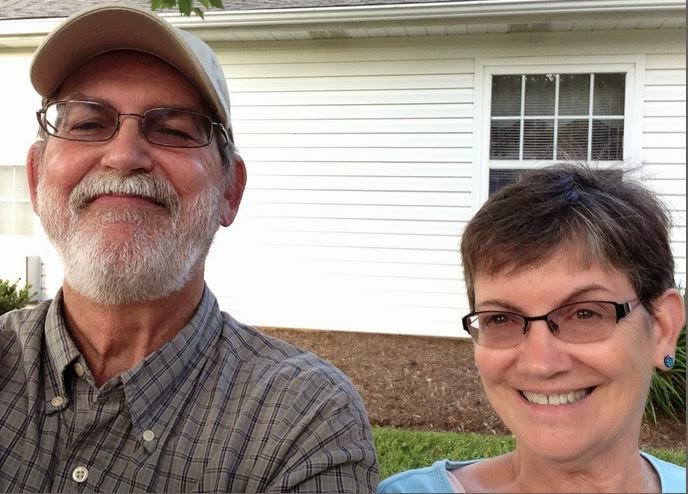She was unknown to me, but she was there at the funeral home with some of the other family members I had come to visit. My eye gravitated to her as soon as I entered the room. She was an older woman who had a very expressive face. Deep furrows mapped out lines in her cheeks and around her eyes. She was, in a word, "wrinkly" ---- if that's a word.
Now I don't mind wrinkles. I think they are testimonies to a full life, the marks of wisdom and a well seasoned life. Smooth faces are kind of like a new pair of jeans that haven't been broken in yet. But wrinkled faces are one-of-a-kind treasures. They are like the rich patina on a piece of antique furniture that can't be duplicated on a piece of wood by a quick application of stain. Wrinkles take time to make, like the slow changing of copper from its bright shiny glow to the greenish sheen it takes on over a period of years that says "this has stood the test of time."
So, I noticed this woman's wrinkles, but something didn't seem right about them. Of course, it's not every day that I spend a great deal of time pondering someone else's wrinkles, especially when they belong to a person to whom I have just been introduced. Still, there was no denying it. Even to the recently introduced pastor, there was something peculiar about these wrinkles. But what was it?
Just then, my friend offered insight into this wrinkly faced woman: "She really is a wonderful and happy person!" With that, I saw that face completely rearrange itself. The woman broke into a broad smile. Instant transformation! Then I knew what was wrong before: the woman wasn't smiling. That's what made those wrinkles seem unnatural. When she smiled, every fold of skin, every grooved line, seemed to snap to attention. Every surface line conformed itself perfectly with the muscles underneath. Every groove and muscle became one with the true spirit of that woman. This is who she is. She is a smiling person. That's what she spends most of her time doing. Her wrinkles are marks of her happiness and her true nature.
In Advent, we spend a lot of time thinking about wrinkles and grooves and ruts and straight paths. John the Baptist steps onto the stage with words like, "Prepare the way of the Lord, make his paths straight." (Matthew 3:3)
This advent, I'm going to spend some time preparing by thinking of that woman and her wrinkly face. When she grew into that smile, she aligned her face, her grooves, her muscles, and her spirit with God's purpose for her in life: to smile. She was doing what she does best. The wrinkles got their kinks out and made straight paths in her face that seemed to go straight into the very heart of her being.
It is a beautiful sight when our wrinkles get lined up with what God wants us to be. During Advent, may we be open to God's love and inspiration, and may our wrinkles be signs that the Christ child has made his home in our lives.











